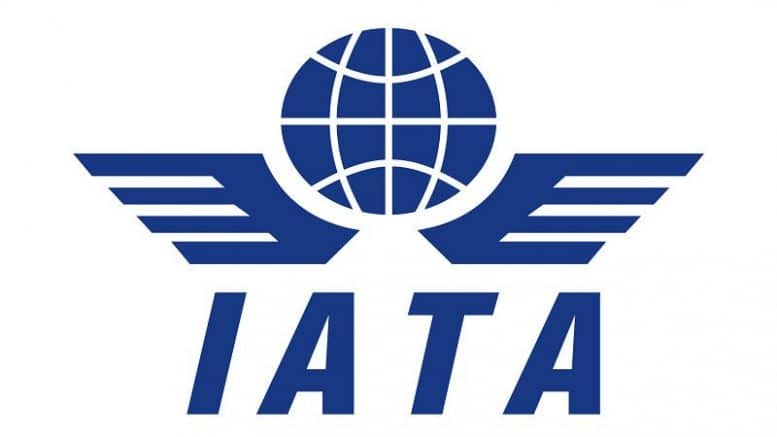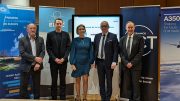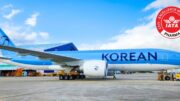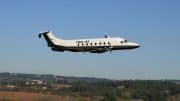Création d’un Mastère Spécialisé commun ENAC – IATA Aircraft Life Management and Maintenance, se déroulant pour moitié sur le Campus ENAC Toulouse.
IATA – ENAC Advanced Master in Aircraft Life Management and Maintenance (AL2M)
Description
IATA and the Ecole Nationale de l’Aviation Civile (ENAC) have partnered to offer a Master Degree program for airline, OEM and MRO maintenance professionals. This Master is a part- time program with 11 intensive modules of 5 days each every month. The theoretical part will be followed by a practical phase in the industry.
The Advanced Master in Aircraft Life Management and Maintenance aims to improve not only the technical and regulatory knowledge of engineers and managers participating to the program but also to provide an understanding of the business models and the commercial fundamentals of the maintenance market.
The participants will have a concrete view of international aircraft maintenance domain and its principal actors with a focus on their respective markets.
The Master leads participants in a rigorous academic manner through the theories behind the practices in order to strengthen the application of practical operational expertise. Case studies and real-life examples are explored in all modules.
What you will learn
Participants will be awarded an IATA-ENAC Master Degree upon successful completion of the following modules:
Module 1
Introduction to Maintenance Management
This introductory course describes the Master Objectives, its program and organization. Review the current air transport business with a focus on maintenance and the market outlook for maintenance activities. This course summarizes the historical background of aviation maintenance activities from Hard Time/ remedial maintenance to condition monitoring. It explains the modern approach to maintenance engineering within the ICAO and IOSA frameworks. The course outlines modern technological challenges in aircraft maintenance and provides an introduction to the IATA Operational Safety Audit (IOSA) concentrating on maintenance provisions. The basic concepts that affect maintenance costs will also be illustrated.
Module 2
Aircraft Basics
Be familiarized with aircraft main characteristics and systems in order to reach a common understanding of how an aircraft works. Learn the main parameters which characterize an aircraft and the reasons why. Starting with main characteristics, such as performance, payload and range, be led through aircraft configuration, as designed, manufactured, delivered and maintained, and the aircraft airframe and systems. The module concludes with a review of the principal publications relative to aircraft maintenance: flight and technical manuals.
Module 3
Regulations and Quality Compliance
In this module you will review the regulatory environment applicable to civil aviation, become familiar with relevant laws and documents, such as Conventions, Annexes and Manuals, prepared by International rulemaking entities in particular ICAO. Participants will be able to describe in detail how ICAO Annexes are the basis for National Aviation Regulations. This is followed by a comparison of international and national aviation rules with industry standards applicable to aircraft maintenance such as ISO, IATA, A4A and so on. Over the five days you will solve examples based on real-life cases to consolidate your newly acquired knowledge and familiarity with the regulations and standards applicable to compliance and safety in the context of certification processes.
Module 4
Aircraft Maintenance Program
The objective of this module is to provide participants with knowledge of the basis of the aircraft maintenance program concentrating on the reasons, processes and examples of the various documentations resulting from these processes. You will be led through aircraft maintenance needs and explore the impact of design improvements on the reliability of the systems and components. Gain an overview of the main airworthiness authorities’ requirements that need to be fulfilled by the aircraft manufacturers and the operators. Become conversant with the MRB process and the MSG-3 analysis process. Other topics covered are the Maintenance Review Board Report (MPBR), safety analysis and airworthiness limitation, the Maintenance Planning Document (MPD), aircraft ageing programs, the Operator Maintenance Program and the International Maintenance Review Board Policy Board (IMRBPB) system.
Module 5
Aircraft Reliability and Improvement
Combining theoretical concepts and practical examples, this module provides participants with an overview of reliability aspects related to aircraft operations. Reliability analysis is presented an essential tool for all manufacturers and airlines, to improve their product and reduce the direct and indirect costs generated by scheduled and unscheduled maintenance. The main reliability processes and methods will be introduced including examples of typical software used in the industry. Typical reliability reports will be presented and analyzed. Participants will learn how to minimize service interruptions whilst lowering maintenance costs and adhering to aviation industry requirements. Be familiarized with the documents used to embody modifications of the aircraft during services (Service Bulletins or operator developed modifications).
Module 6
Safety and Human Factors
This module will enable you to be able to name and discuss flight safety risks derived from aircraft maintenance. You will review ICAO’s Safety Management System concept in the context of human factors in aircraft maintenance. The facilitator will lead participants through a review of human factors. Your deepened understanding of the implications of human factors in the management and the performance of maintenance activities will be demonstrated by discussing
with the group. By the end of the module you will be able to propose and discuss methods for managers to develop a company’s safety culture.
Module 7
Aircraft Maintenance Business
The Aircraft Maintenance Business module aims at providing students with a global and up-to- date understanding of the various maintenance markets and their associated actors. The various types of maintenance activities and associated business offerings will be studied, as well as their contractual modes. Aircraft fleet growth and distribution together with the emergence of new technologies which will affect in the future the Maintenance Business will be discussed. Topics covered will include aircraft manufacturers, standard chargeable and new services such as Boeing Gold Care and Airbus FHS, Systems OEMs, airline perspectives and strategies, MRO industry dynamics, independent service providers and maintenance contracts.
Module 8
Aircraft Continuing Airworthiness Management
The module will provide a complete overview of the aspects related to aircraft operator engineering management. Typical functions of the airline engineering department will be analyzed together with the typical activities: preparation and management of the maintenance program; maintenance scheduling and follow-up; reliability programs and service bulletins evaluation and certificate of airworthiness management. Participants will review theoretical concepts together with practical examples and participate in a course integration exercise that covers all aspects of continuing airworthiness management.
Module 9
Maintenance and Repair Organization (MRO)
The MRO module reviews the methodology of aircraft maintenance and repair which includes line maintenance as well as hangar maintenance in combination with home base and line station events. Participants will demonstrate their understanding of the organization and structure of an MRO facility through practical exercises.
Module 10
Aircraft Manufacturer and Vendor Customer Services
This module provides a close look to the typical customer support organization of an aircraft manufacturer and major suppliers such as engine, avionic and other systems OEMs. Participants will be introduced to the main processes and typical services provided to the customers including the future trends in the market. Participants will be familiarized with the tools and infrastructure of a support organization.
Module 11
Flight and Technical Training
Participants will be able to have a close look at the market, processes and infrastructures for the training of pilots, flight attendants and mechanics. The applicable regulations will be reviewed and focus will be given on the future development driven by the wide use of innovative
multimedia technologies. Training tools will be deeply analyzed together with their use in the different stage of the training program.









Be the first to comment on "Nouveau MS ENAC-IATA"